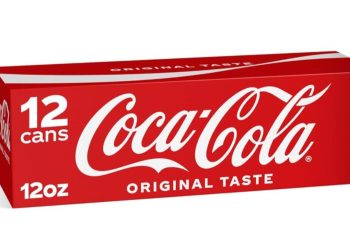The Federal Trade Commission (FTC) has revealed that UnitedHealth Group has been charging patients significant markups on critical life-saving medications, sometimes exceeding their cost by over tenfold.
Similar allegations were also made against CVS and Cigna in the report, which highlights systemic inefficiencies in the U.S. healthcare system. This comes shortly after the tragic murder of UnitedHealthcare CEO Brian Thompson last month.
Despite having the highest healthcare costs among wealthy nations, the U.S. continues to lag behind Europe’s social-market economies in patient outcomes. Critics attribute this disparity to the opaque pricing practices that mask inefficiencies, benefiting stakeholders like pharmacy benefit managers (PBMs).
The FTC report identified UnitedHealth’s OptumRx, Cigna’s Express Scripts, and CVS Caremark Rx as collectively pocketing $7.3 billion in additional revenue above drug costs from 2018 to 2022. The report noted that these PBMs applied markups of thousands of percent on some specialty generic drugs sold through their affiliated pharmacies. For example, a drug costing $10 wholesale could be marked up to $110 retail, a practice affecting 22% of specialty therapies reviewed. These included generic leukemia treatment Imatinib, pulmonary hypertension medication Tadalafil, and HIV therapy Lamivudine, which was priced nearly four times its acquisition cost.
Independent Vermont Senator Bernie Sanders has been holding Congressional hearings to address the role of PBMs and drug manufacturers in inflating healthcare costs.
The accused killer of Brian Thompson, Luigi Mangione, reportedly cited frustrations with the healthcare industry as his motive, and his actions sparked social media outrage against UnitedHealth. The company’s insurance arm, managed by Thompson, was reported to have denied claims at twice the industry average, according to ValuePenguin.
In one instance, surgeon Elisabeth Potter recalled being interrupted during a breast cancer operation by UnitedHealthcare’s demand for proof of the procedure’s necessity. “Insurance is out of control,” she said in a TikTok video.
The FTC report, led by outgoing chair Lina Khan, was unanimously approved by all five commissioners, including Republicans Andrew Ferguson and Melissa Holyoak. Khan, known for her aggressive stance on monopolies, has faced criticism from various political and corporate circles, particularly in Silicon Valley.
In response, OptumRx stated it is reviewing the report but claimed to have helped eligible patients save $1.3 billion, with median out-of-pocket costs at just $5. Similarly, CVS Caremark criticized the FTC for allegedly “cherry-picking” data and argued its policies have reduced out-of-pocket costs by 29% since 2016.
While branded drugs often require years of costly trials with uncertain returns, generics—being off-patent—cost significantly less to produce and have ready regulatory approval, making the high markups particularly controversial.













